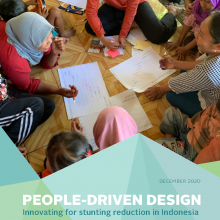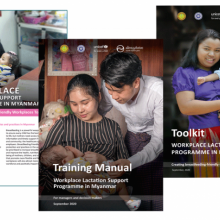Journal article
Feb 07 2023

The political economy of infant and young child feeding: confronting corporate power, overcoming structural barriers, and accelerating progress (Baker P, Smith JP, et al, The Lancet. 2023)
Despite increasing evidence about the value and importance of breastfeeding, less than half of the world's infants and young children (aged 0–36 months) are breastfed as recommended. This Series paper examines the social, political, and economic reasons for this problem.
Journal article
Sep 01 2022

Implementation and Effectiveness of Policies Adopted to Enable Breastfeeding in the Philippines Are Limited by Structural and Individual Barriers
The Philippines has adopted policies to protect, promote, and support breastfeeding on par with global standards, yet the impact of these policies is not well understood.
Announcement
Jan 01 2022

East Asia Pacific Newsletter
Subscribe to and read our East Asia Pacific Newsletter to stay up to date on all of Alive & Thrive's activities across the ASEAN region.
Guide/Manual
May 24 2021

People Driven Design: Innovating for stunting reduction in Indonesia
To inform a refresh process of the Government of Indonesia’s National Strategy to Accelerate Stunting Reduction 2018-2022 (StraNas Stunting), and the subsequent localization of
Toolkit
Dec 03 2020

Workplace lactation support programme in Myanmar
Breastfeeding is a powerful weapon in the fight to ensure every child has the best possible start to life, but mothers need access to accurate information and timely support from their family and community; the healthcare system; and their employers.
Journal article
Feb 25 2020

Different combinations of behavior change interventions and frequencies of interpersonal contacts are associated with infant and young child feeding practices in Bangladesh, Ethiopia, and Viet Nam (Kim, S., 2019. Current Developments in Nutrition)
This article demonstrates that exposure to interventions matters for impact, but the combination of behavior change interventions and number of interpersonal counseling contacts required to support behavior change in infant and young child feeding are context-specific.

